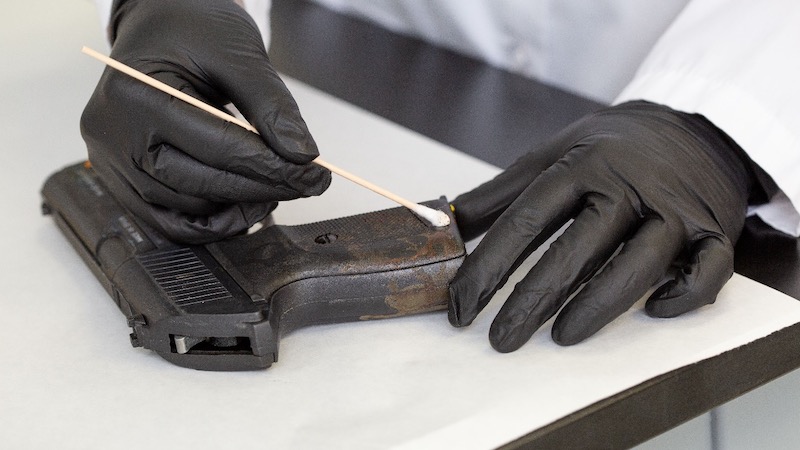Human identity testing (HID) testing through short tandem repeat (STR) genotyping is the backbone of forensic analysis. STR analysis, coupled with capillary electrophoresis separation, aims to individualize or link perpetrators to crimes. CFSRE scientists has aimed to optimize workflows for processing various challenging sample types including bones, fired cartridge cases, as well approaches to enhance the separation and identification of sperm cells from sexual assault cases. The CFSRE has also focused on the assessment of complex mixtures on various probabilistic genotyping platforms and evaluated RapidDNA platforms.

Benefits
Research performed at CFSRE allows agencies to evaluate the results generated and determine if the implementation of the suggested protocol will be beneficial to bring into the laboratory for traditional testing without having to spend the time performing the research in-house.Vendors also have the opportunity to receive feedback from the perspective of a case working laboratory on newer methods or products before being released to the community.
Resources
The CFSRE continues to present this work at national and international conferences as well as in peer-reviewed publications.
Presentations
- A comparison Study of DNA Collected Using Reference Collection Devices for Improved Lab Efficiency
Presented at the 2021 International Symposium on Human Identification (ISHI). Orlando, FL - An Evaluation and Comparison of Locus-Specific and Allele-Specific Alternate Stutter Artifacts Frequently Encountered in GlobalFiler™ DNA Profiles
Presented at the 2021 International Symposium on Human Identification (ISHI). Orlando, FL - Evaluation of Virtual Standard Curve Functionality of the HID Real-Time PCR Analysis Software by Comparison to Assay Specific Standard Curves and an External Standard Curve Generated In-House
Presented at the 2021 International Symposium on Human Identification (ISHI). Orlando, FL








